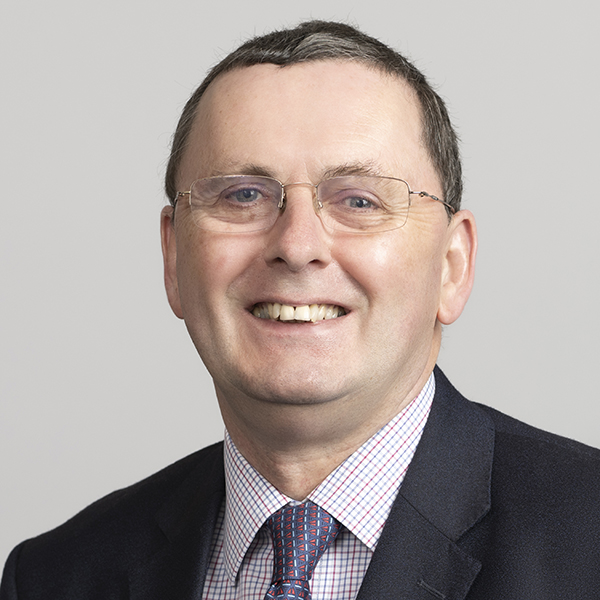*As a shareholder of the Company, you are not able to refer complaints about the management of the Company to the Financial Ombudsman Service (FOS). We welcome feedback and ask that any comments be passed on to the Company Secretary.
Risks
The value of your investment may rise or fall, and your capital is at risk.
Any investment in an investment trust involves risk. You should be aware of the following risks when considering investing:
Past performance
Past performance is not a reliable indicator of future returns and does not guarantee future results.
The value of your investment
The value of shares, and any income from them, can fall as well as rise and investors may not get back the amount invested.
Market volatility
The value of the Company and any income from it can fall or rise because of movements in stock markets, currencies and interest rates, each of which can move irrationally and be affected unpredictably by diverse factors, including political and economic events.
Emerging and Developing Markets
Emerging and developing markets can face significant political, economic or structural challenges. The portfolio may experience delays in buying, selling and claiming ownership of investments and there is an increased risk that the portfolio may not get back the money invested.
Concentration
In view of the concentrated nature of the portfolio, the level of risk is expected to be higher than for broader based portfolios and the value may be more volatile.
Smaller companies
Securities of smaller companies may be less liquid, and exhibit more volatile returns, than the securities of larger companies.
Currency
The Company’s assets may be priced in currencies other than the portfolio base currency. Changes in currency exchange rates can therefore affect the Company’s value.
Charges from capital
Where charges are taken wholly or partly out of the Company’s capital, distributable income may be increased at the expense of capital, which may constrain or erode capital growth.
Leverage
The Company may operate with a significant amount of leverage. Leverage occurs when the economic exposure created by the use of derivatives is greater than the amount invested. Leverage may result in large fluctuations in the Company’s value and therefore entails a high degree of risk including the risk that losses may be substantial.
Important Information
Shares in the Company are a form of equity investment.
This information has been issued and approved by Lazard Asset Management Limited (“Lazard”), 20 Manchester Square, London, W1U 3PZ. Lazard is investment manager to Mid Wynd International Investment Trust plc (the “Company”) and is authorised and regulated by the Financial Conduct Authority.
This is a marketing communication and does not in any way constitute investment advice or an offer or an invitation to deal in securities.
Further information about the Company, including a Key Information Document, is available on the Company’s website www.midwynd.com.
Before investing, potential investors should also read the Company’s Investor Disclosure Document, in particular the ‘Risk Factors’, the Company’s Key Information Document (“KID”) and its most recent Annual or Interim Report.
Forecasted or estimated results do not represent a promise or guarantee of future results and are subject to change. Past performance is not a reliable indicator of future results.
The value of investments and the income from them can fall as well as rise and you may not get back the amount you invested.
Investments in securities, derivatives and commodities involve risk, will fluctuate in price, and may result in losses.
Certain assets held in Lazard’s investment portfolios may trade in less liquid or efficient markets, which can affect investment performance.
There can be no assurance that the Company’s objectives or performance target will be achieved. Any investment is subject to fees, taxation and charges within the Company and the investor will receive less than the gross yield.
MSCI makes no express or implied warranties or representations and shall have no liability whatsoever with respect to any MSCI data contained herein. The MSCI data may not be further redistributed or used as a basis for other indexes or any other securities or financial products. This report has not been approved, reviewed, or produced by MSCI.
Further Information
Tax Rates
The tax treatment of each investor may vary, and you should seek professional tax advice. The contents of these materials are confidential and should not be disclosed other than to the person or persons for whom it is intended.
Regulation
The Company is listed on the London Stock Exchange and is not authorised or regulated by the Financial Conduct Authority.
Information Subject to Change
The information and opinions expressed here are as of the published date and are subject to change without notice.
Non-Mainstream Pooled Investment (NMPI) status
The Company currently conducts its affairs so that its shares in issue can be recommended by financial advisers to ordinary retail investors in accordance with the Financial Conduct Authority’s (“FCA’s”) rules regarding non-mainstream investment products and intends to do so for the foreseeable future.
Shares in Mid Wynd International Investment Trust plc are excluded from the restrictions in the FCA rules which apply to non-mainstream pooled investment products, because they are shares in an investment trust.
The shares in the Company may also be suitable for institutional investors who seek a combination of capital and income growth.
Private investors should consult an independent financial adviser specialising in the acquisition of shares and other securities before acquiring shares. Investors should be capable of evaluating the risks and merits of such an investment and should have sufficient resources to bear any loss that may result.
